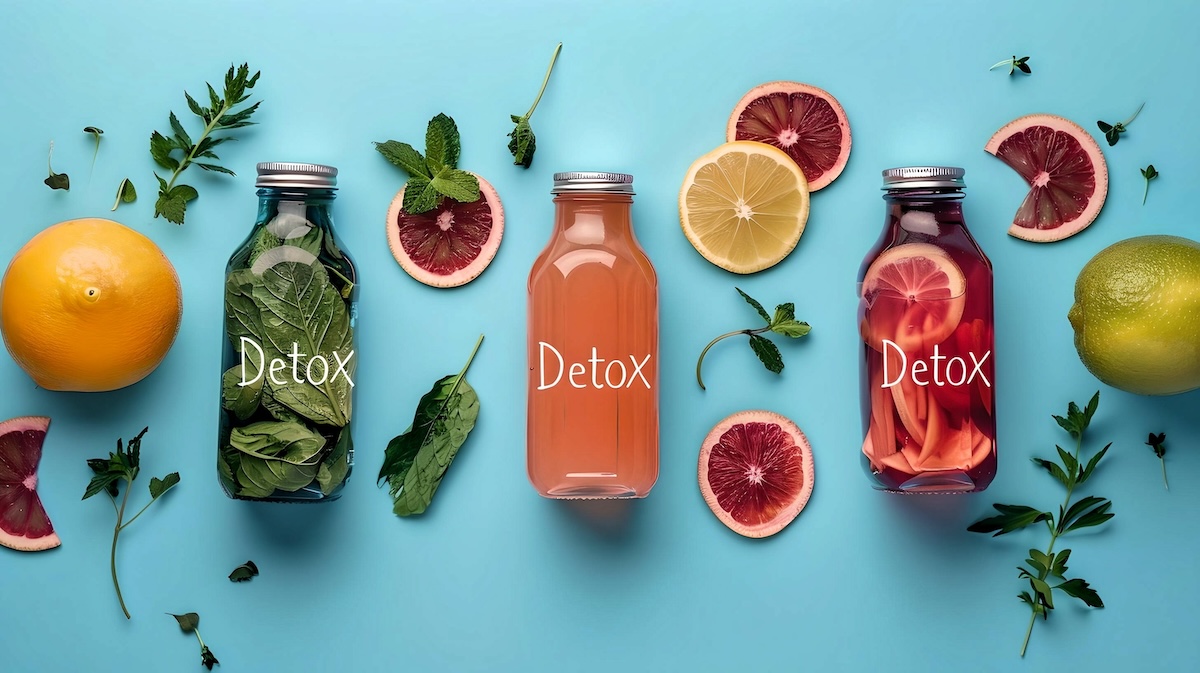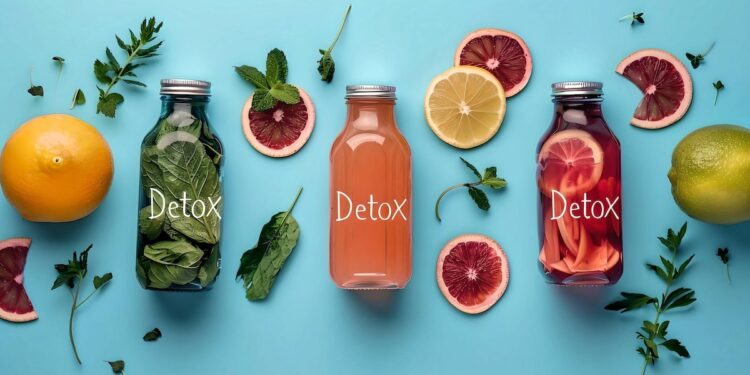
In the never-ending quest to eat better, lose weight, and get healthier, many of us have been holding onto outdated myths about nutrition passed down from well-intentioned, misguided family, friends, or celebrities we’ve never met! I have been consuming false claims about what is “healthy” for most of my life!
That’s why I compiled a list of the top popular nutrition myths you’ve probably heard and may even believe. I’ve searched the internet for reputable sources to find out if there’s any scientific evidence to back them up. Are you ready to separate fact from fiction and debunk these myths once and for all?
Watch Out! What you are about to read may be hard to believe.
Table of Contents
Myth #1: Eating Eggs (Yolks) Will Kill You
Sound familiar? We’ve long been told that eating eggs, especially the yolks, causes high cholesterol, which can lead to cardiovascular disease and death. Where did this come from? The American Heart Association 1968 warned us to eat no more than three whole eggs per week to avoid consuming dietary cholesterol, which was thought back then to cause high cholesterol.
It has taken half a century of scientific research to understand the truth: Consuming high levels of saturated and trans fats is to blame for high cholesterol, not eggs.
The National Institute of Health refers to this myth as “an outdated hypothesis slowly put to rest,” concluding, “Half a century of research has shown that egg and dietary cholesterol intake is not associated with increased cardiovascular disease risk.
Most health promotion agencies around the world have dropped egg restrictions altogether.
FACTS: Eggs are among the most affordable, nutrient-dense, complete protein sources. They are full of vital nutrients that promote healthy eyes, brain, and nerves, as well as essential vitamins like A, B, and D. Omega-3 fatty acids are widely proven to lower our risk of heart attack and death.
According to Scientific American, hens fed flaxseed yield these eggs.
WHAT TO WATCH OUT FOR: While eggs are considered healthy, how they’re cooked and what we eat alongside them could have perpetuated their notoriously Bad reputation.
Foods like bacon, sausage, and ham are traditionally enjoyed with eggs, and using butter and oils in their preparation has most likely tainted the health benefits of our perfect protein.
The American Heart Association writes, “Decades of science have proven that saturated fats can raise your “bad” or LDL cholesterol and put you at higher risk for heart disease.
Myth #2: We need Juice Cleanses to Detox the Body & Jumpstart Weight Loss
The idea that juicing rids your body of toxins and cleanses your vital organs sounds fantastic and entirely believable. However, it’s just not true. Adding more fruits and vegetables to our meals and snacks has proven health benefits. There is little to no scientific evidence to support the idea that juicing your daily fruits and vegetables cleanses your body more than eating them in whole form and staying adequately hydrated throughout the day. That is, I found no valid long-term research to confirm this claim.
I get it. Drinking your fruits and vegetables may seem easy to get in all your daily vitamins and minerals. I often treat myself to a delicious carrot, beet, ginger, celery, and fresh apple juice. I know that juice is healthier than frozen sangria.
But just because it tastes and feels good doesn’t mean that juicing, pulverizing much of the healthy fiber, and destroying the essential vitamins and nutrients in fruits and vegetables is necessarily healthy or necessary to cleanse the body.
FACT: Our liver and kidneys work naturally to filter out toxins without any help from juices. Unfortunately, there’s more scientific evidence of drawbacks associated with various “detoxes” and “cleanses” than the purported health benefits such as improved digestion, energy boost, and reduced inflammation.
Juices primarily consisting of fruits add more sugars and calories than you could eat the whole version of in a day. Longer juicing may cause more harm than good without protein to stabilize blood sugar spikes.
Liver and cancer specialist and surgeon Thomas Aloia, M.D., explains the importance of a healthy liver: “Detoxifying the normal things we eat, breathe, and ingest is part of its job and keeps us alive.”
So, how do we care for the liver so it functions properly? Dr. Aloia urges us to maintain a healthy diet and avoid putting extra demands on this vital organ.
He warns, “Don’t pack your liver full of fat, sugar, or alcohol, so the (detox) machine keeps doing its job well.”
If Whole Foods like fruits and vegetables and a plant-based diet centered around lean protein sources like legumes, nuts, and seeds instead of animal products is what you’re looking to consume with these detoxes, cleanses, and juices, he says, “you will likely get all the benefits such programs offer.”
WHAT TO WATCH OUT FOR/WARNING: Juicing as a meal replacement results in inadequate calories and, most importantly, reduces the fiber required to absorb the nutrients from whole foods. This way of drastically cutting calories may result in weight loss. However, eliminating healthy protein sources could result in losing lean muscle mass and missing out on vitamins and nutrients to fuel your day with energy.
That’s not all; if weight loss is your goal, you may gain more weight when you return to your regular intake of calories and processed food.
Myth #3 Eating Soy Increases Risk of Breast Cancer
It was hard to understand that consuming soy products had been associated with cancer, especially considering that soy is the most popular plant protein, the central component of several Asian cuisines, and is widely used in diverse populations worldwide.
Soy milk emerged in Europe and the US in the 1980s, but it wasn’t until the ’90s that I noticed it. I vividly remember when everyone switched to soy milk in their coffee! Silk, a popular brand of soy milk products, was everywhere.
How could this healthy protein alternative to cow’s milk cause breast cancer when so many populations, including vegetarians, consumed so much of it? Something didn’t sound right. A friend of mine warned me with some urgency about the danger of soy.
Since her mother had recently lost her battle with breast cancer, I was convinced it had to be true! But was it? I needed to know that this claim was scary even though I didn’t like the taste of it in my coffee and never had a taste for tofu.
The confusion stems from a few misinterpretations of scientific evidence in the past. Breastcancer.org attributes older studies that were performed on rats suggested that large doses of isoflavones found in soybeans stimulated breast cancer cells to grow in Petri dishes. However, there is no evidence to suggest the same effect in people.
FACT: Harvard researchers confirm soy foods are rich in nutrients, including B vitamins, fiber, potassium, magnesium, and high-quality protein. Soy is a complete protein containing all nine essential amino acids the body cannot make alone.
According to the American Cancer Society, there is growing evidence that eating tofu, tempeh, edamame, miso, and soymilk may lower the risk of breast cancer.
Myth #4 Fresh Produce is Healthier than Frozen or Canned Versions
It may surprise you that although packaged produce is technically processed, its effects on nutritional value are minimal.
The National Institute of Health reports, “Research has revealed that frozen fruits and vegetables can have just as many vitamins —and sometimes more—than fresh.
While freezing may impact the texture of your fruit when it thaws, fresh fruit retains its natural texture better.
For those who do not have access to fresh produce or proper storage provisions, frozen or canned fruits and vegetables are a convenient and healthy alternative.
However, if you prefer the taste of fresh produce, then fresh may be the only way to go.
FACT: According to the American Heart Association, frozen and canned options can be healthy alternatives to fresh produce, the operative word being ‘can.’
In fact, according to UCLA Health, it is well documented that canned and frozen fruits and vegetables are commonly processed within hours of being harvested, which helps preserve their nutrients.
Smart Shopping Tips: It is essential to choose carefully and pay attention to the labels to avoid added sugars like “heavy syrup” or high sodium concentrations. Choose packaged varieties, such as fresh fruits and vegetables, free of salt, syrups, and creams, and season on your own.
WHAT TO LOOK OUT FOR: Follow the directions on the package of frozen varieties to avoid overcooking them to the point they lose color or shape. If you cannot identify the vegetable, some nutrients may have been lost along the way.
To be clear, it is possible to encounter a slight shift in the nutritional value of frozen produce. Tish Food Center says, ” Water-soluble vitamins, like vitamins C and B, may leach during the initial blanching process. Also, storing produce in the freezer for too long may cause freezer burn in which cell walls rupture, resulting in a noticeable change in color, flavor, and texture.” The fact remains, however, that adequately stored frozen fruits and vegetables make enjoying produce year-round.
Myth #5 Gluten-Free Foods are Healthier
If you’ve heard about gluten, you may be aware of it since so many products are suddenly made without it. But what exactly is it?
Gluten is a protein in grains like rye, wheat, and barley. It’s common in foods like bread, cereal, and pasta. Celiac disease is an inherited, diagnosable autoimmune disease estimated to affect 1 in 100 people worldwide.
When someone with Celiac disease eats food containing gluten, their bodies trigger an immune response that attacks the small intestine, causing damage and malabsorption of nutrients.
FACT: Gluten-free foods are NOT healthier. The opposite may be true: “Gluten-free foods are commonly less fortified with folic acid, iron, and other nutrients than regular foods containing gluten,” according to Harvard researchers.
They have found that gluten-free foods contain less fiber but more sugar and fat and cost more. Further research has seen “a trend toward weight gain and obesity among those who follow a gluten-free diet (including those with celiac disease).”
There is no compelling evidence that a gluten-free diet will improve health or prevent disease if you don’t have celiac disease.” This means avoiding gluten is unnecessary if you can eat gluten without trouble.
These are just the first five; we have 15 more to go. Stay tuned for part two.
This story is made possible by an educational grant from Novo Nordisk.
























